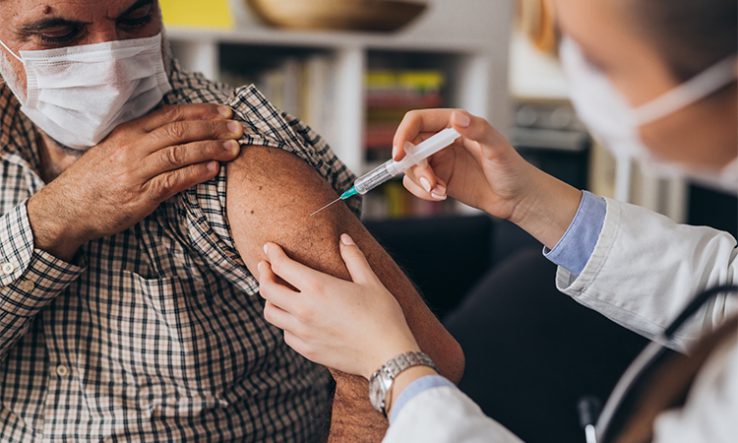
The £2 million study comes as government agrees contract for 35 million more Pfizer doses
Researchers at the universities of Birmingham and Glasgow are to investigate the impact of a third Covid-19 vaccine dose on people with weakened immune systems in a £2.2 million study.
The issue of booster shots for the already vaccinated is emerging as a major policy debate, as evidence grows that the protection offered by Covid vaccination may wane with time. Meanwhile, many leading figures are increasingly vocal about their belief that it is unethical for richer nations to be giving people third shots when millions of the world’s poorest citizens have not received a vaccine.
News of the UK study comes as the government agreed a contract for 35 million more doses of the Pfizer/BioNTech vaccine to be delivered in the second half of 2022. Health secretary Sajid Javid said on 23 August that the agreement would help “futureproof our vaccine programme, ensuring we have plans in place to keep the nation safe for years to come”.
Going up an octave
Funded by the government’s vaccine taskforce and national research funder UK Research and Innovation, the Octave Duo study will analyse immune responses to Covid-19 vaccination among people across the UK.
The study teams hope their work will help to predict which people would benefit most from a third dose of a Covid-19 vaccine, and identify groups who still do not produce a sufficient immune response and need alternative approaches.
The announcement comes as preliminary data from the wider original Octave trial suggests that 40 per cent of people with weakened immune systems show a low, or undetectable, immune response after two doses of a Covid-19 vaccine.
Pam Kearns, a scientist at the University of Birmingham who is coordinating both studies, said, “Together with our preliminary findings from Octave, this new study will be instrumental in helping inform how best to vaccinate patients with chronic conditions, and protect them from Covid-19 infection in the future.”